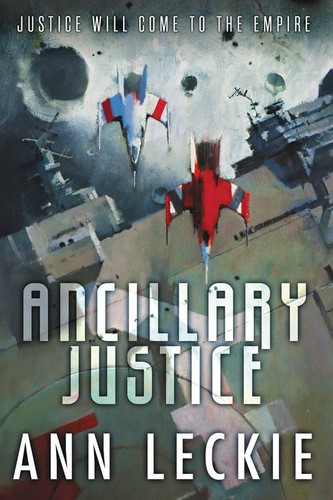Review: Ancillary Justice [★★★☆☆]
Ancillary Justice
by Ann Leckie
My rating: ★★★☆☆
Read From: 15 June 2014 - 20 June 2014
Goal: Awards
This is the first of the books that I'm reading before voting for the Hugo awards. I'm ambivalent about this book. I don't hate it but I don't love it either. It has an interesting premise, but it never emotionally grabbed me.
The central character, the narrator, is Justice of Toren, the AI for a ship, a giant troop carrier. She is the ship. She also operates hundreds of human bodies, as her ancillaries. The ancillaries are the bodies of criminals and rebels, now transformed through implants into extensions of the Justice of Toren. (Punishing someone by making her an ancillary is equivalent to punishment by execution.)
Ann Leckie gives the reader a good idea of what it would be like to be an individual that's capable of being in multiple places at once, doing many different things. It's interesting to think about what it would be like to be able to multitask to that degree and to handle multiple different situations and tasks simultaneously. We get to experience that often, throughout the book.
Ancillary Justice also raises the question of what it means to be of two minds about something. We often talk of being internally conflicted, of disagreeing with ourselves, or of being at war with ourself. Would that look any different if you had multiple bodies? What kind of effect would that have on the world around you?
Finally, the book plays around with gender. The Justice of Toren has been operational for thousands of years. She's seen many different cultures—and many different versions of the same culture—over the years. Gender markers are constantly changing: long hair or short, make-up or not, style of clothing, type of clothing, behaviors. As a result, she can never tell which gender an individual is and defaults to using the feminine pronoun for everyone unless forced to do otherwise.
Every character in the book is referred to as "she" or "her", regardless of actual gender. I finished the novel and I still don't know the gender of some of the characters. Even when I could figure it out, the constant repetition of the feminine pronoun made it hard to remember. It played with your head, in the best possible way.
This was a book with a lot of good ideas. On paper, I should love it. But I didn't and I never felt like I just couldn't wait to get back to it. I was disappointed by that.
This entry was tagged. Book Review Review
